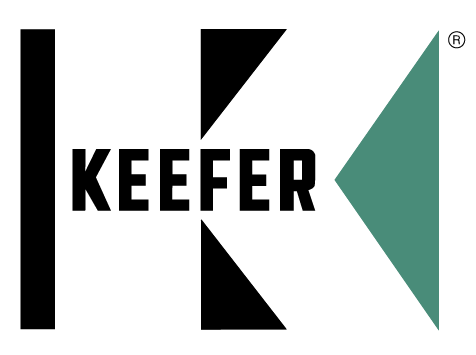“Step two! There’s so much we can do.”
– Donnie Wahlberg, NKOTB
There are reasons why new business owners form corporations, limited liability companies or other legal entity forms. Branding and credibility in the marketplace are of course important, but limiting personal liability is the primary driver. In other words, owners set up these business forms to shield themselves from personal liability in the event something goes wrong with the business . . . can you blame them?
When you set up a business entity, you are required to proactively govern that entity from the initial documentation all the way through growth and global domination (cue Dr. Evil laugh). Failing to do so could mean losing the protections these entity forms offer, in addition to many other issues.
You Gotta Keep ‘Em Separated . . .
Business entities such as corporations and limited liability companies must be kept appropriately separate from the individuals forming them. In order to ensure this separation, certain formalities will need to be followed. Typical formalities include:
-
Maintaining separate business accounts;
-
Holding annual meetings, as well as special meetings for important business decisions;
-
Business record-keeping, including meeting minutes, resolutions and agreements for important transactions;
-
Maintaining accurate financial records; and
-
Regulatory reporting in some securities-related settings.
Depending on the type of entity structure and number of business owners, there may also need to be by-laws or agreements in place which govern the relationships among the owners and the entity.
Now, some entity forms are more flexible than others as far as the formalities are concerned. Size, geography and ownership (e.g., privately-held vs. public) issues, among other considerations, all come into play in deciding one form over another. However, failure to follow minimum required formalities regarding your particular business form can have adverse effects, such as:
-
The ability of third-parties to disregard your business entity form (known as “piercing the veil”) and then go after you individually for something your business may have done wrong;
-
The inability to do business in certain states, including fines and penalties in those states for doing so;
-
Claims by minority shareholders that majority decision-makers were not authorized to undertake certain actions;
-
Events of separation (death, divorce or assignment of interests) resulting in third-parties having more control over the business than what was initially intended or desired; and
-
Possibly even a knock on the door from federal and state enforcement agencies for wrongdoing.
A good Preventive Lawyer, working hand-in-hand with your business accountant, can assist in choosing and then setting up the initial business entity, and can then work with your team to proactively govern the business to ensure business and legal risks are minimized.
. . . But Not Too Separate from the Others
Let’s say your widget-making business has grown to earn substantial revenues, owning a significant percentage of the widget-making industry. In order to spread the wealth (and also minimize your own burden), you set up a few more companies in different states which are owned primarily by your children and a small handful of worthy employees. Of course, you also retain some ownership as well and are ultimately responsible for certain baseline pricing decisions for your products among the family of widget-making businesses.
Depending on how you set up these business entities, this situation could actually be considered collusion among competing companies in violation of federal and state antitrust laws, subjecting you and your businesses to criminal and civil actions. In addition to potential criminal exposure, other smaller competitors may be all too eager to file lawsuits against your businesses claiming they were somehow damaged as a result of an alleged conspiracy among your “competing” companies.
In order to avoid these competitive exposures, your family of widget-making business entities will need to have an appropriate unity of interest or purpose. In other words, these businesses can’t have the appearance of separate, independent decision-makers as far as the making and selling of widgets is concerned. And depending on the states you’re doing business in, there may be additional ownership and decision-making requirements from a competitive standpoint.
Being proactive in structuring your business entities on this front can be critical from a timing standpoint. If you wait too long, you may find your business has grown to a size where you have to obtain government approval before proceeding with a business restructure, planned merger or other substantial acquisition. In addition to initial business setup and on-going governance, a seasoned Preventive Lawyer can work with your team to develop strategies to minimize exposure to these competitive risks.
Call of Duty
Earlier, we talked about the necessity of following legal formalities with regard to your business form. This compliance can actually have a dual purpose . . . these signed minutes, consent resolutions, and agreements can tell a detailed story about what the company did, and why those running the company did it. Why is this important, you ask?
Decision-makers of the business are considered fiduciaries of the business, meaning they are under an obligation to not usurp business opportunities for their own personal gain. In other words, these decision-makers can’t allow personal interests to prevail over the interests of the business. An action by a business decision-maker is typically presumed to be valid as long as it is consistent with the exercise of honest business judgment or discretion. This is known as the “business judgment rule.”
In order to get the benefits of this deferential business judgment standard, it is imperative that minority owners have notice, full information and an opportunity to consent to the transaction. And given the size of the transaction, consequences to the business or other considerations, an independent special committee may also need to be engaged to evaluate potential fairness issues.
If there is evidence of self-dealing, the deferential business judgment presumption can be rebutted. In that case, the decision-maker will have to prove that the transaction was in fact in the best interests of the company, using a less-deferential “entire fairness” standard. This means the decision-maker will have to affirmatively demonstrate that the transaction was fair in both process and substance, with a court typically being the final say on the matter. A determination that the decision-maker breached a fiduciary duty could mean civil damages all the way up to having the business placed in receivership and liquidated. Not good.
Preventive Lawyers can be a great resource to assist your business with conducting annual and special business meetings and then preparing the minutes, resolutions and agreements to tell the business story correctly and in a detailed manner. Their proactive approach helps minimize fiduciary risks to the business.
Like contract development, business governance is not the sexiest part of running a business. However, it is equally as important in contributing to long-term success. As one of the nation’s only practices focused exclusively on Preventive Law, KEEFER can work with you on the governance front, minimizing exposure to registration, competitive and fiduciary risks before they become a reality.
KEEFER is your ounce of prevention.





















